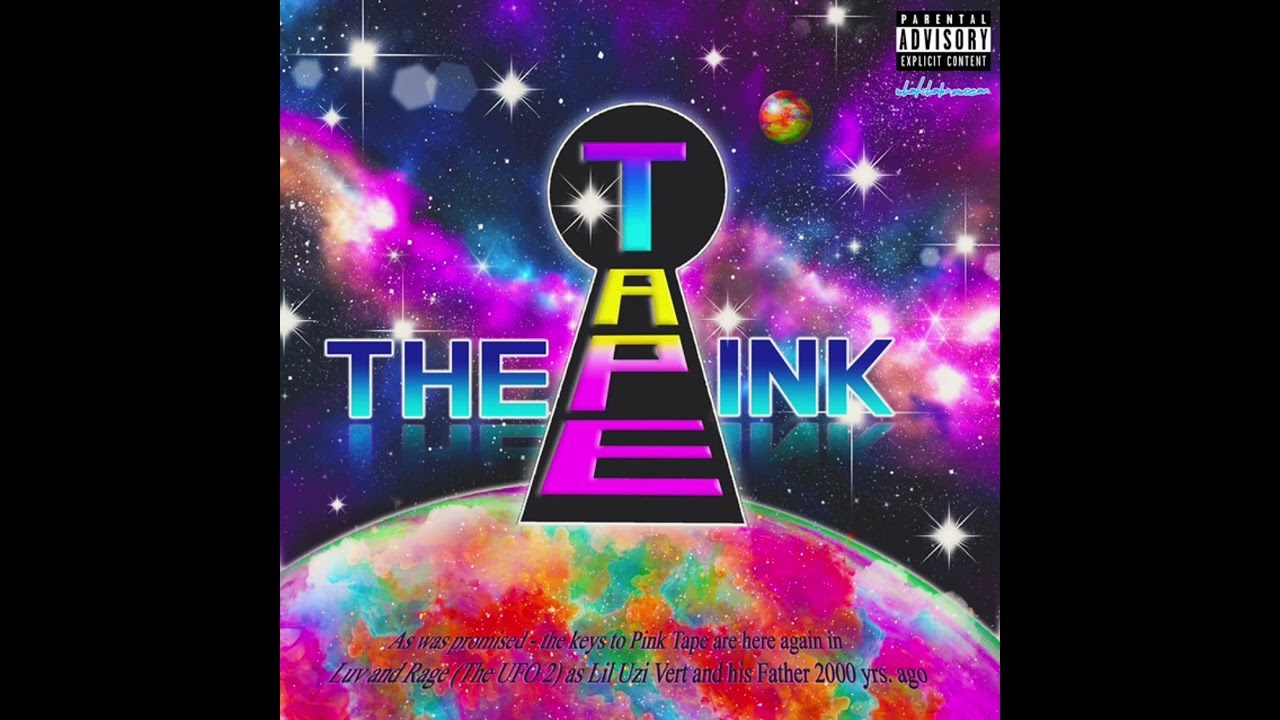Pink Tape LIL UZI

In the ever-evolving landscape of contemporary music, few artists capture the imagination quite like Lil Uzi Vert. Born Symere Bysil Woods, this Philadelphia-born rapper has made waves not only for his unique musical style but also for his eccentric fashion sense and enigmatic persona. Among his many ventures into the realm of creativity, one of the most talked-about projects is the elusive “Pink Tape.” More than just an album, the Pink Tape represents a convergence of artistry, symbolism, and innovation that has left fans and critics alike captivated and intrigued.
Lil Uzi Vert’s rise to stardom has been nothing short of meteoric. Bursting onto the scene with his distinctive blend of trap, emo, and punk influences, he quickly garnered a dedicated following. His early mixtapes, such as “Luv Is Rage” and “Lil Uzi Vert vs. the World,” showcased his unapologetic approach to self-expression and cemented his reputation as a boundary-pushing artist. With each subsequent release, Lil Uzi Vert continued to push the envelope, defying genre conventions and embracing experimentation.
Enter the Pink Tape—an enigmatic project shrouded in mystery and speculation. Unlike traditional album releases, which are often accompanied by extensive marketing campaigns and promotional singles, the Pink Tape arrived seemingly out of nowhere, announced with little fanfare or explanation. Its title alone sparked curiosity, conjuring images of something both delicate and bold, playful yet profound.
At its core, the Pink Tape is more than just a collection of songs; it is a multimedia experience that blurs the lines between music, visual art, and storytelling. From its striking cover art—a minimalist yet captivating image of a pink cassette tape—to its meticulously crafted tracklist, every aspect of the Pink Tape is infused with symbolism and meaning. But perhaps what sets the Pink Tape apart is its innovative approach to distribution and consumption.
In an era dominated by streaming services and digital downloads, Lil Uzi Vert took a bold step by releasing the Pink Tape exclusively on physical cassette tapes. This decision may seem counterintuitive in a world where streaming reigns supreme, but it speaks to Lil Uzi Vert’s desire to challenge conventions and reconnect with the tangible aspects of music. By eschewing digital platforms in favor of a more tactile medium, he invites listeners to engage with the Pink Tape on a deeper level, encouraging them to slow down and savor the experience.
The Pink Tape’s sonic landscape is as eclectic as its creator, drawing inspiration from a wide range of musical genres and influences. From the infectious melodies of pop-punk to the hard-hitting beats of trap, each track offers a glimpse into Lil Uzi Vert’s eclectic musical palette. But it’s not just the music itself that captivates; it’s the way in which Lil Uzi Vert weaves together sounds, lyrics, and imagery to create a cohesive and immersive listening experience.
Thematically, the Pink Tape explores a variety of topics, from love and heartbreak to fame and self-discovery. In songs like “Pink Panther,” Lil Uzi Vert reflects on the trappings of celebrity and the pressures of fame, while tracks like “Rose Colored Glasses” delve into the complexities of romantic relationships. Throughout the album, Lil Uzi Vert’s introspective lyrics are complemented by his trademark delivery—a melodic blend of singing and rapping that is as catchy as it is confessional.
But perhaps the most intriguing aspect of the Pink Tape is its overarching symbolism. Pink, often associated with notions of femininity and softness, takes on new meaning in Lil Uzi Vert’s hands. Here, pink becomes a symbol of strength and resilience, a defiant rejection of traditional gender norms and expectations. Similarly, the cassette tape—a relic of a bygone era—becomes a metaphor for nostalgia and nostalgia for a simpler time, a reminder of the power of music to transcend boundaries and connect us to our past.
In many ways, the Pink Tape embodies the essence of Lil Uzi Vert himself—unpredictable, unapologetic, and utterly captivating. It is a testament to his artistic vision and his willingness to push the boundaries of what is possible in music. But perhaps more importantly, it is a reminder of the enduring power of creativity to inspire, provoke, and move us.
As we continue to unravel the mysteries of the Pink Tape and explore its hidden depths, one thing remains clear: Lil Uzi Vert is not just a rapper; he is a visionary, a trailblazer, and an artist in the truest sense of the word. And with the Pink Tape, he has once again proven that his creativity knows no bounds, leaving us eagerly awaiting whatever he has in store next.





